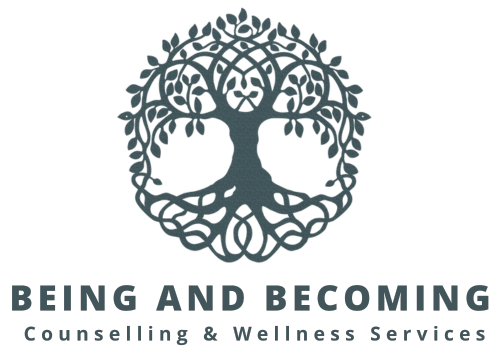Breaking Down Barriers: The Transformative Benefits of Online Counselling in BC
Mental health support has undergone a revolutionary transformation in recent years, with online counselling emerging as a powerful alternative to traditional face-to-face therapy. As digital technology continues to reshape healthcare delivery, teletherapy has proven to be more than just a convenient substitute—it's become a game-changing approach that's making mental health care more accessible, flexible, and effective for millions of people worldwide.
The shift toward online counselling gained significant momentum during the COVID-19 pandemic, but its benefits extend far beyond pandemic-era necessities. Today's digital therapy platforms offer sophisticated, evidence-based treatment options that rival traditional in-person sessions while addressing many of the barriers that have historically prevented people from seeking mental health support.
Unprecedented Accessibility and Convenience
The most significant advantage of online counselling lies in its ability to eliminate geographical barriers. Individuals living in rural areas or underserved communities no longer need to travel hours to access quality mental health care. This geographic flexibility is particularly crucial for people in areas with limited mental health resources, where the nearest qualified therapist might be hundreds of miles away.
Beyond geography, online counselling removes numerous logistical obstacles that often prevent people from maintaining consistent therapy schedules. There's no need to navigate traffic, find parking, or arrange childcare for appointments. Parents can attend sessions while their children nap, working professionals can schedule sessions during lunch breaks, and individuals with mobility challenges can receive care without transportation concerns.
The convenience factor extends to scheduling flexibility as well. Many online platforms offer extended hours, including evening and weekend appointments that accommodate diverse work schedules and time zones. This flexibility is particularly valuable for shift workers, caregivers, and individuals juggling multiple responsibilities who might otherwise struggle to maintain regular therapy appointments.
Enhanced Comfort and Reduced Stigma
Online counselling creates a unique therapeutic environment that can actually enhance the therapeutic process for many individuals. Being in one's own familiar space—whether that's a bedroom, home office, or other private area—can reduce anxiety and help clients feel more comfortable opening up about sensitive topics. This increased comfort level often leads to more honest communication and faster therapeutic progress.
The privacy offered by online sessions encourages more people to seek help who might otherwise avoid therapy. Despite growing awareness and acceptance of mental health issues, stigma remains a barrier for many. Some individuals hesitate to seek therapy because they fear being judged or recognized at a therapist's office. Online counselling offers a level of anonymity that can make it easier for people to take that first step. Sessions can be conducted via video or phone, allowing clients to choose the communication method that feels most comfortable for them. This sense of privacy can empower individuals to open up more honestly and engage more fully in the therapeutic process.
For individuals dealing with depressions, social anxiety, agoraphobia, or other conditions that make leaving home challenging, online counselling provides an essential bridge to mental health support. These clients can begin their therapeutic journey from their safe space and gradually work toward goals that might eventually include more social interaction or community engagement.
Specialized Services and Expert Access
Online counselling dramatically expands access to specialized therapeutic services and expert practitioners. Clients no longer need to limit their therapist selection to their immediate geographic area, instead gaining access to specialists who might be located anywhere in their province. This expanded access is particularly valuable for individuals seeking therapists with specific cultural competencies, language abilities, or expertise in specialized treatment areas.
For people dealing with rare conditions, specific traumas, or unique circumstances, online platforms make it possible to connect with therapists who have relevant experience and training. LGBTQ+ individuals in conservative areas can access affirming therapists, individuals from specific cultural backgrounds can find therapists who understand their experiences, and those dealing with specialized issues like eating disorders or addiction can connect with experts in their field.
Evidence-Based Effectiveness
Research consistently demonstrates that online counselling can be as effective as traditional face-to-face therapy for many mental health conditions. Studies have shown positive outcomes for depression, anxiety, PTSD, and various other conditions when treated virtually. The key factors for success remain the same regardless of delivery method: a strong therapeutic relationship, evidence-based treatment approaches, and client engagement in the process.
The effectiveness of online counselling often surprises both clients and providers, with many discovering that the digital format doesn't diminish the quality of therapeutic connection or outcomes. Some clients actually report feeling more connected to their online therapists, possibly due to the intimate nature of inviting a professional into their personal space via technology.
Looking Forward: The Future of Mental Health Care
Online counselling represents more than a temporary adaptation to modern challenges—it's a fundamental evolution in mental health care delivery that addresses long-standing barriers to treatment access.
The benefits of online counselling—accessibility, convenience, reduced stigma, cost-effectiveness, and continuity of care—make it clear that teletherapy will continue playing a crucial role in the mental health landscape. For many individuals, online counselling isn't just an alternative to traditional therapy; it's the key that unlocks access to mental health support that can transform their lives.
Whether used as a primary treatment method or in combination with other therapeutic approaches, online counselling offers a flexible, effective path toward better mental health that meets people where they are—literally and figuratively—in their journey toward healing and growth.
